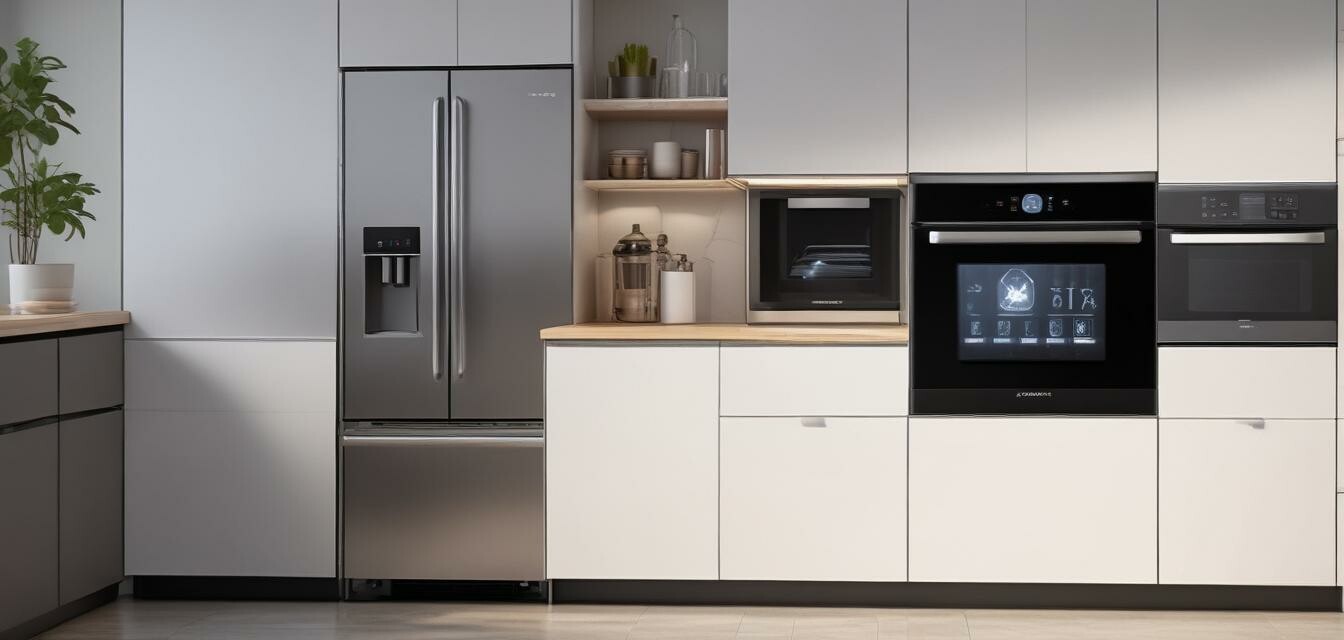
The Role of Artificial Intelligence in Energy Efficiency
Key Takeaways
- AI enhances the functionality of energy-efficient appliances by learning user habits.
- Real-time performance optimization leads to significant energy savings.
- Integration of AI technology improves user experiences and reduces carbon footprint.
- Future trends include advanced smart home integrations and predictive maintenance.
As the world moves towards sustainability, appliances are evolving with the help of innovations such as artificial intelligence (AI). This article delves into how AI is changing energy efficiency in households and businesses. Understanding AI's role can significantly impact how we manage energy consumption and make more informed purchasing decisions in the realm of air conditioners, dishwashers, and beyond.
How AI Learns User Habits
AI technologies utilize complex algorithms to analyze user behavior and predict future actions. By monitoring interactions with appliances, AI can personalize settings for optimal energy usage.
| User Action | AI Response | Energy Savings |
|---|---|---|
| Turning on the heater | AI adjusts temperature settings based on previous usage | 20% less energy consumed |
| Running the dishwasher | AI modifies cycle based on load size | 15% less energy consumed |
| Adjusting the refrigerator temperature | AI stores preference and auto-regulates | 10% less energy consumed |
Real-Time Performance Optimization
One of the most significant advantages of integrating AI into energy-efficient appliances is their ability to optimize performance in real time.
- Devices can automatically transition between power modes based on current usage.
- Scheduled tasks can be shifted to off-peak hours, minimizing energy costs.
- AI can notify users about optimal settings or energy-saving tips based on usage patterns.
Examples of Optimization
Various appliances are utilizing AI for better performance:
- Refrigerators that adjust cooling depending on how often the door is opened.
- Washing machines that determine the ideal wash cycle based on the soil level of clothes.
- Microwave ovens that calculate the optimal time for even cooking based on food type.
Reducing the Carbon Footprint
AI-driven appliances not only save energy but also contribute to lowering the household's overall carbon footprint.
- By improving energy efficiency, AI appliances consume fewer resources.
- The intelligent scheduling of energy usage aligns with renewable energy differences, further reducing reliance on nonrenewable sources.
- AI systems can provide actionable insights into reducing energy waste, empowering users to make environmentally friendly choices.
Future Trends in AI and Energy Efficiency
The integration of AI in energy-efficient appliances is still in its early stages. Emerging trends are set to revolutionize the market:
- Increased integration with smart home systems for seamless energy management.
- Advanced predictive maintenance features that anticipate appliance failures before they occur, reducing waste.
- Wider adoption of machine learning algorithms that improve energy efficiency over time without user intervention.
Conclusion
The role of artificial intelligence in enhancing the energy efficiency of appliances cannot be overstated. It offers remarkable opportunities for not just user convenience but significant energy savings and environmental benefits. By embracing AI technologies, consumers are taking substantial steps towards a more sustainable future.
Pros
- Saves energy and reduces electricity bills.
- Offers personalized appliance settings based on user behavior.
- Facilitates sustainability efforts through decreased emissions.
Cons
- Initial cost of AI-integrated appliances may be high.
- Reliance on technology can be concerning for some users.
Related Topics
For more insights, consider reading about our tips on tips to improve energy efficiency in your home or explore the latest news and trends in energy-efficient appliances. Stay informed by checking our heaters category for more innovations in energy-saving technology.
